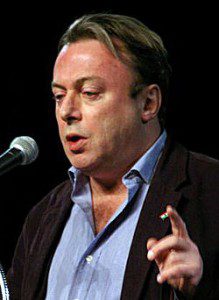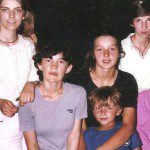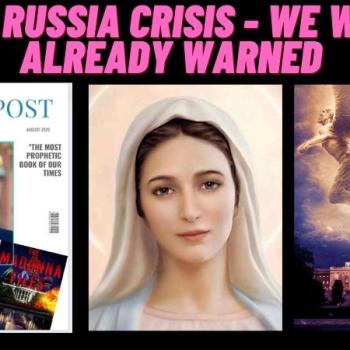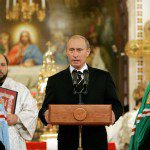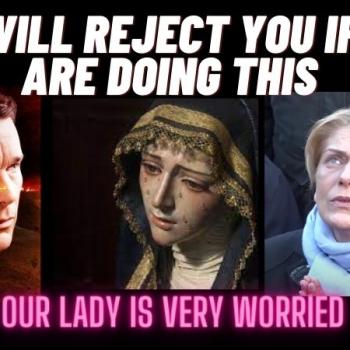“He has bricked himself up high in his atheist tower, with slits instead of windows from which to shoot arrows at the faithful, and he would find it rather hard to climb down out of it. But I have the more modest hope that he might one day arrive at some sort of acceptance that belief in God is not necessarily a character fault-and that religion does not poison everything. Beyond that, I can only say that those who choose to argue in prose, even if it is very good prose, are unlikely to be receptive to a case that is most effectively couched in poetry.”
So writes English intellectual and journalist Peter Hitchens of his big brother Christopher. Though brothers, the two men are nothing short of polar opposites.
Christopher is a devout atheist. Peter is a devout Christian of the traditional Anglican persuasion. Politically, Christopher has developed neoconservative views on foreign policy issues like the War in Iraq, being a strong supporter of the conflict. Politically, Peter is a paleoconservative-perhaps the American equivalent of a Ron Paul or a Pat Buchanan-who holds strong anti-war views on Iraq and who is a fervent critic of American and English foreign policy in the region. Christopher has written a famous book criticizing belief in God and religion called “God is Not Great: How Religion Poisons Everything.” Peter, on the other hand, has written a book defending belief in God and faith called “The Rage Against God: How Atheism Led Me to Faith. ”
They are different men in many ways. Beyond the perpetually sensitive issues of religion and politics, Peter admits that they never got along as children either-eventually growing up as two men divided, siblings but living separate lives. Interestingly, at one point in their lives they had more in common on the theological level.
Peter Hitchens begins “The Rage Against God”-which, in addition to being an eloquent apologetic of faith, also constitutes his spiritual memoir-with a significant event in his life wherein, as a fifteen year-old boy in boarding school, he set fire to his Bible on a playing field in Cambridge. “It would be many years before I would feel a slight shiver of unease about my act of desecration,” Peter reflects. “Did I then have any idea of the forces I was trifling with?”
No. He didn’t.
Peter spent much of his adolescence as an angry atheist embracing socialistic, Trotskyist politics and rejecting the old Anglican traditions of what used to be English Christianity. Yet, he writes poignantly about the Old England of years passed that has been slowly eradicating in light of growing secularism, materialism, and a relativism that sees no higher Truth to life and reality.
At one point he quotes a powerful passage from the John Buchan story “Fullcircle,” wherein a character living in a seventeenth-century manor muses mystically about the spiritual and aesthetical prowess that used to make up Old England:
“In this kind of house you have the mystery of the elder England. What was Raleigh’s phrase? ‘High thoughts and divine contemplations.’ The people who built this sort of thing lived closer to another world, and thought bravely of death. It doesn’t matter who they were – Crusaders or Elizabethans or Puritans – they all had poetry in them and the heroic and a great unworldliness. They had marvelous spirits, and plenty of joys and triumphs; but they also had their hours of black gloom. Their lives were like our weather – storm and sun. One thing they never feared – death. He walked too near them all their days to be a bogey.”
The passage is very artful and poetic, resonating into a deeper spiritual sense of meaning, one that embraces the inevitable and eternal reality of death. Peter has said that in order for his brother Christopher-and like minded atheists-to accept people of faith they need to step outside of their comfort zone, outside of prose, and enter into the realm of poetry – a realm that requires deeper comprehension of mystery and beauty, transcending the dry rationalism that encompasses much of modern atheism. Here he was alluding to an ancient truth, one recognized by early Greek philosophers like Socrates as well as twentieth-century theologians like Hans Urs von Balthasar, that true beauty, true poetry, true art, has a spiritual dimension: it is divinely inspired, not man made. For true art has the spiritual power to uplift a man’s soul beyond his material reality, beyond what he is comfortable with.
Art played a powerful role in Peter’s own return to the faith: in his spiritual reversion. He once had a meaningful experience with Rogier van der Weyden’s fifteenth century polyptych, “The Last Judgment.” Interestingly, being in a museum and staring at van der Weyden’s painting, which depicts the damned and the saved, Peter felt mortal fear. “I had absolutely no doubt that I was among the damned, if there were any damned…No doubt I should be ashamed to confess that fear played a part in my return to religion. I could easily make up some other, more creditable story. But I should be even more ashamed to pretend that fear did not. I have felt proper fear, not very often but enough to know that it is an important gift that helps us to think clearly at moments of danger.”
Peter Hitchens has a history of experiencing close, life-threatening encounters that spell danger given his work as a foreign correspondent, a job that has led him from some of the most dangerous, war-infected regions of Africa to that towering milieu of intimidation, the Soviet Union. For many years, as a journalist, he worked as a correspondent in the Soviet Union. Here he writes about the power of feeling fear and the possibility of death poignantly.
“I have felt it when Soviet soldiers fired on a crowd rather near me, and so I lay flat on my back in the filthy snow, quite untroubled by my ridiculous position because I had concluded, wisely, that being wounded would be much worse than being embarrassed. But the most important time [when he felt fear] was when I stood in front of Rogier van der Weyden’s great altarpiece and trembled for the things of which my conscience was afraid (and is afraid). Fear is good for us and helps us to escape from great dangers. Those who do not feel it are in permanent peril because they cannot see the risks that lie at their feet.”
It was spending many years in the Soviet Union, and internalizing the dark and dry reality of that impoverished society, which led Peter to the realization of how detrimental ideological atheism can be. He eventually abandoned the Trotskyist socialist-atheist views of his youth, after seeing the horror that Trotsky’s and Lenin’s Bolshevik Revolution led to for human life in Russian society, after witnessing the misery firsthand.
One of the strongest aspects of Hitchens’ book is his vivid depictions of Soviet society, a tragedy he personally witnessed on a daily basis – though, as a westerner, his own accommodations in Moscow were much more comfortable than those of Russian citizens. One powerful aspect that Hitchens’ captures, among others, is how many in Soviet society had succumbed to alcohol-as a refuge from the emptiness that the atheistic life led to (deprived of any deeper, inner and spiritual realities). Hitchens explains:
“While tourists and distinguished visitors were taken to the ballet, ordinary male Muscovites (women wouldn’t have dared go there) patronized beer-bars so horrible that I could only wonder at the home life of those who used them. You took your own glass-usually a rinsed-out pickle jar-and a handful of brass coins worth a few pennies, along with some dried fish wrapped in old newspaper. You fed your coins into a vending machine, and pale, acid beer dribbled intermittently out of a slimy pipe into your jar. You then went to a high table, slurped your beer (which tasted roughly the way old locomotives smell), and crunched your fish, spitting the bones onto the floor. There was no conversation.”
Hitchens continues to describe the gloomy misery, the depressing reality of the society:
“I visited one of the special police stations that handled the drunks, and they showed me a dismal museum of the things Russians drank when they could not get vodka. Cheap Soviet after-shave, apparently, was bearable and intoxicating if drunk through cotton waste. A sandwich of black bread and toothpaste was mildly alcoholic if nothing else could be found. A popular and bitter jest told the story of a conversation in a drinker’s home after the state announced a rise in the price of vodka. ‘Daddy,’ asks the child with hope in its heart, ‘will this mean you will drink less?’ ‘No,’ replies the head of the household, ‘It means that you will eat less.'”
In realizing the brutality that much of Soviet society was encapsulated with, including the ideological components that led to the ugliness, Peter Hitchens makes sure to eradicate the myths about Soviet society that “New Atheists”-like his brother-have promulgated. “My brother Christopher suggests that Joseph Stalin’s Soviet Union was in fact a religious state. The specifically anti-religious character of the Soviet system under Stalin makes such a claim nonsensical.”
The anti-religious character of Stalin’s Soviet Union is, of course, nowadays well known. Peter Hitchens also stresses the brutal anti-religiosity that started the Soviet Union, emphasizing that during Lenin’s Bolshevik Revolution not only were Orthodox church’s looted (a state-sponsored campaign) but, tragically and disgustingly, in 1922 alone “2,691 priests, 1,962 monks, and 3,447 nuns were killed.”
Hitchens reflects on the words of William Henry Chamberlin, who for twelve years was a correspondent in Moscow, witnessing the results of the Bolshevik Revolution. Chamberlin wrote of the deeper reality he witnessed: “There have been many instances in history when one religion cruelly persecuted all others; but in Russia the world is witnessing the first effort to destroy completely any belief in supernatural interpretation of life.”
Peter Hitchens is an intellectual for Americans, especially, to discover. While most Americans are well-acquainted with his older brother, Peter has a lesser following on this side of the Atlantic than over in the U.K. Yet, he represents a Christian that receives rare attention in our modern media portrayal of Christianity. In America, our press loves to reduce mainstream Christianity to the neoconservative, Christian Right community that supports saving unborn children from abortion while openly supporting the killing of Iraqi children through war in the name of “democracy” and “freedom.” Peter Hitchens, however, as a paleoconservative, a form of conservatism much kinder than the hawkish neoconservatism dominating much of American foreign policy, knows that true Christianity and unjust war constitute polar opposites that have nothing in common and should have nothing to do with one another.
Christopher Hitchens, while seeing atheism as a benevolent force over religion, has supported such inhumane campaigns as the Iraq War-which have reportedly been responsible for the deaths of over a million innocent civilians, countless numbers of women and children slaughtered in the process. Peter Hitchens has opposed such senseless cruelties, giving greater credibility to his words. However, Peter is not naïve to the fact that many so-called “Christians” have supported such violent conflicts while they completely defeat the purpose of Christianity and Christ’s teachings. Peter sees war, and many of the churches who supported wars throughout the twentieth century, as the biggest detriment to western Christianity – as the biggest reason that many, especially disenchanted youth, have abandoned Christianity in Europe and America. Hitchens argues that the World War I and II did much to destroy Christianity in his homeland.”
“Civilized countries become less civilized when they go to war…I would add that, by all but destroying British Christianity, these wars may come to destroy the spirit of the country. Those who fought so hard to defend Britain against its material enemies did so at a terrible spiritual cost. The memory of the great slaughter of 1914-18 was carried back into their daily lives by millions who had set out from quiet homes as gentle, innocent, and kind and returned cynical, brutalized, and used to cruelty.”
At times, Hitchens’s poignant words reflect the musings of the great Christian Renaissance thinker Erasmus, who, in memory of a student that lost his life in war, wrote a short but powerful poem, explaining:
“Tell me, what had you to do with Mars, the stupidest of all the poet’s gods, you who were consecrated to the Muses, nay to Christ? Your youth, your beauty, your gentle nature, your honest mind — what had they to do with the flourishing of the trumpets, the bombards, the swords?”
Peter Hitchens is an important voice for the American public to get acquainted with for he constitutes that rare breed of an intellectual who not only criticizes the “New Atheists” for their erroneous positions about faith but also has no sympathy for those political leaders who speak in the name of Christianity while completely abusing and neglecting Christian principles in their policies. He appropriately calls them leaders who “abuse Christian piety for non-Christian ends.” Hitchens especially sees the damage that such leaders have done to the Christian faith and its churches.
“We might cite the Presidency of George W. Bush,” Hitchens explains,”which combined noisy religiosity with ruthlessness…Something similar could be said about Britain’s Prime Minister Anthony Blair, who was ostentatiously pious while conniving with his intelligence services to manufacture pretexts for aggressive war. Such governments are repellent. The conscription to God into unjust wars does grave harm to the faith. But these leaders were – as they found out – limited in their actions by the very Christianity they exploited. Both Mr. Blair’s New Labour Party and George W. Bush’s Republicans were gravely injured by their blasphemous attempt to enlist heaven in aggressive war. Mr. Bush also undoubtedly hurt Christianity in America by allying it to his war and his administration. The ultimate effects of this error on the part of many church leaders may take years to emerge, just as the European churches’ support for the First World War took decades to devastate those churches. But among younger people especially, I believe great damage has been done.”
In honor of one of our greatest Christian peacemakers, Dr. Martin Luther King, Jr.-who took a stance against the Vietnam War-let us tip our hats to that rare breed of western intellectual, like Peter Hitchens, who tries to live up to his Christian principles, instead of misusing or exploiting them for political gain-like so many influential figures, regrettably, have done on issues of war and peace.
Brother Daniel Maria Klimek, T.O.R., is a Franciscan friar, writer, scholar, and blogger. He earned his Ph.D. in spirituality with distinction from the Catholic University of America, and is a graduate of Yale Divinity School. Br. Daniel Maria is a recognized authority on the Marian apparitions of Medjugorje, the subject of his dissertation. His popular articles have been published in Aleteia, Patheos (MysticPost), MinistryValues, MedjugorjeToday, Medjugorje.org, Spirit of Medjugorje, and he has been featured discussing Medjugorje on Radio Maria (USA), MaryTV, the documentary film Queen of Peace, and the National Medjugorje Conference at the University of Notre Dame. He has also been featured on Radio Veritas discussing Catholic spirituality and Marian devotion. Br. Daniel Maria’s writings have been translated into Croatian, Polish, German, Spanish, Korean, and Indonesian. His scholarly articles have been published in Franciscan Connections: The Cord – A Spiritual Review, Glossolalia, and the Encyclopedia of Global Religion. Br. Daniel Maria is a simply professed friar with the Franciscan Friars of the Third Order Regular of the Province of the Most Sacred Heart of Jesus, pursuing a vocation as a Franciscan priest.

